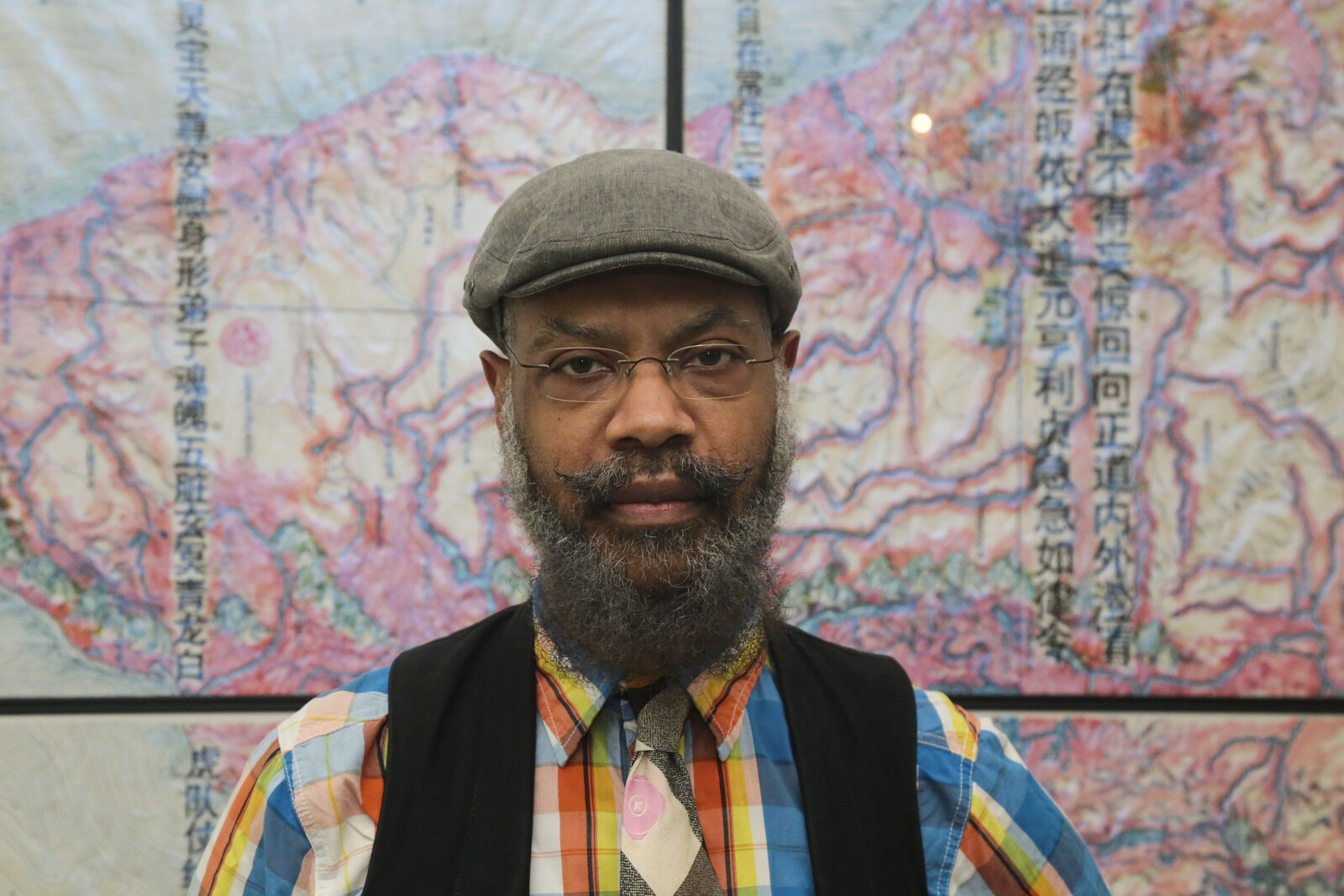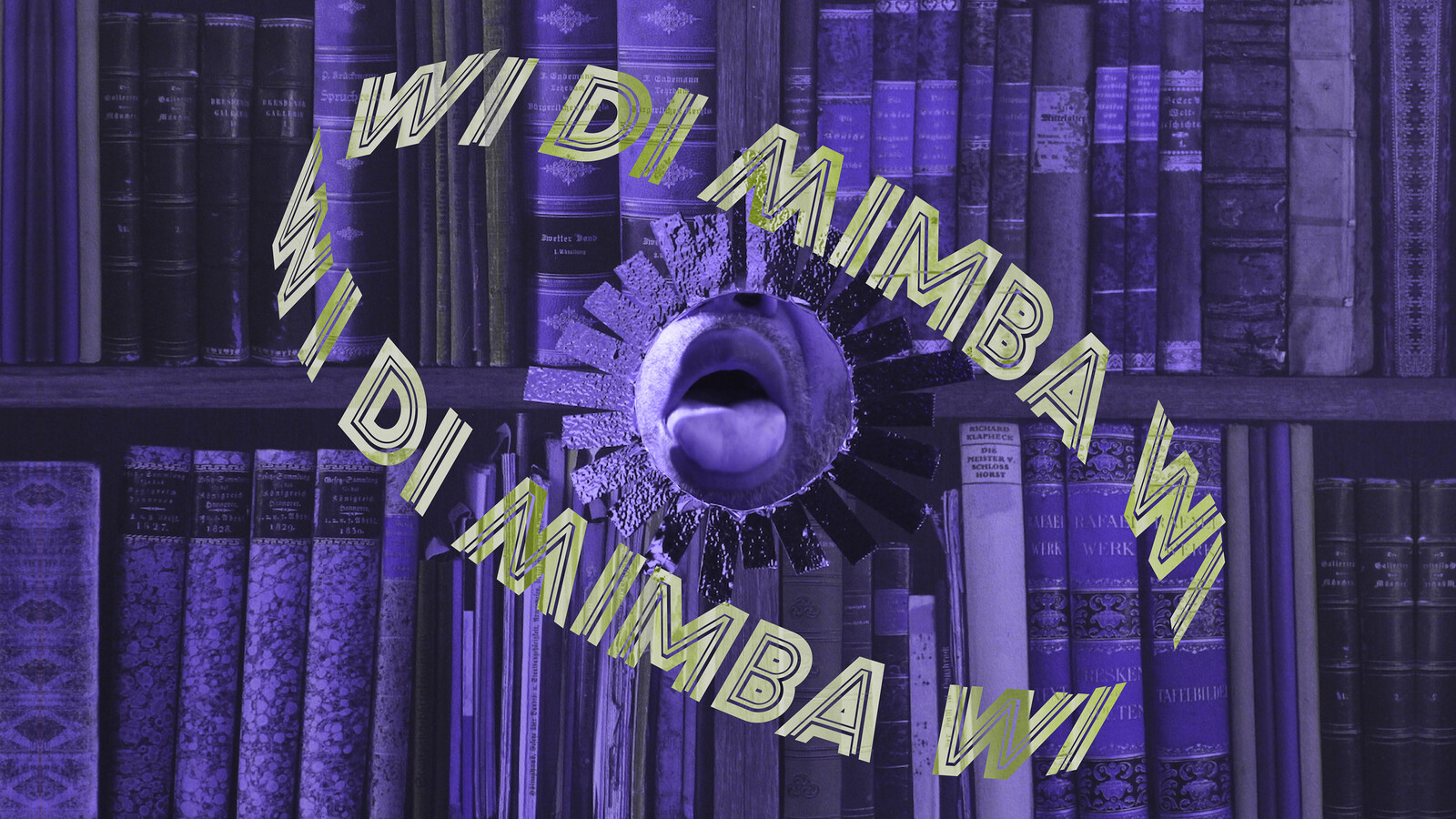We are overjoyed to announce Jean-Ulrick Désert as the inaugural recipient of Wi Di Mimba Wi :: The AKB & SAVVY Contemporary Commission. AKB Stiftung and SAVVY Contemporary have teamed up to launch this new and long-term commission grant for artists of colour based in Germany.
In addition to celebrating and rewarding an artist’s outstanding work, this grant is an invitation to relate, to collaborate and to create together—according to the philosophies and practices lived by SAVVY Contemporary. Our intent with this initiative is to build a strong relationship and support for artists of colour towards a richer and more diverse cultural landscape.
Thanks to the generous support of the AKB Stiftung, the selected artist receives a one year working grant of 30.000 EUR, as well as funds to support the creation of a new artwork and curatorial support. It is planned that the new piece or body of work will be exhibited at SAVVY Contemporary and other venues.
The grant is open to artists of colour based in Germany of all backgrounds, media, ages, stages of career. Candidates were nominated by a board of advisors and selected by a five-member jury. This programme is a long-term engagement to build sustainable support structures in the art world. The grant will be awarded every two years.
The AKB Stiftung is a foundation based in Einbeck, Germany. Established by Carl-Ernst Büchting in 1998.
SAVVY Contemporary is an independent project space for epistemological diversity and radical conviviality, founded 2009 by Dr. Bonaventure Soh Bejeng Ndikung.
Statement by the jury
Jean-Ulrick Désert was shortlisted together with Karimah Ashadu, Ana Paula Oliveira Martins dos Santos and Lerato Shadi, and was selected by a jury of five members: Bassam El Baroni (curator, art critic, lecturer), Karina Griffith (artist and film maker), Otobong Nkanga (artist), Mirjami Schuppert (curator, and coordinator of WDMW for AKB Stiftung) and Bonaventure Soh Bejeng Ndikung (SAVVY Contemporary):
Jean-Ulrick Désert’s body of work is impressive in its breadth and ingenuity. His decades-long work in Germany has made and shaped spaces for crucial questions and practices. Before most of us have begun working in the city of Berlin, Jean-Ulrick was already here and doing the work without which most of us would not be able to do our own work. We acknowledge his ongoing practice and body of work with this award.
Complex and multi-layered, the way his works nest particular locations, events, and histories within the cosmic and the cosmic within the earthly and everyday, highlights the philosophical and poetical depth of Désert’s approach to artmaking and traverses an incredible number of registers: from the political to the spiritual, and from tragedy to comedy. Désert figuratively pokes, prodes and tickles the grotesque characters he plays on screen and in public places to provoke lingering affective responses to Black experiences in Europe.
This award goes to Jean-Ulrick Désert for his deep engagement with his social/cultural practices. His work has the power to activate the viewer in engaging ways, to connect and reveal intertwined histories. His concern around digital technologies brings to the surface the complex nature of the entanglement of politics with society.
Déserts practice, be it site-specific public installation or museum display, enters into dialogue with surrounding cultural traditions, poignantly commenting on the social relations the artist observes around him. Désert has shown an admirable dedication to research, whilst at the same time demonstrating a deeply personal investment in his projects. His practice, which stretches several decades, is continuously relevant in its examination of identities and identity politics, of gender and race.
We are very excited to see which format Désert’s practice will take for the Wi Di Mimba Wi commission, and the path it will lead us on. The commission will also see his works travel to other venues and countries, finding new contexts of display and engaging further audiences.
Jean-Ulrick Désert
“May I convey my most sincere gratification to the Wi Di Mimba Wi jury for this affirming news and for putting their trust in me as the inaugural recipient of this new prize. I am aware of the responsibility that it entails and I look forward to the creators that will follow in my steps from this point forward.
The prize arrives for me at a critical time—in my art practice and for us collectively. We are in a moment where we have reached a global pivoting point. A fulcrum hinged on a virus and our options for collective actions of creative production and experiences. Outside of crisis, I am often reminded of the concrete advice given to me thirty years ago by the late Okwui Enwezor: “Create relevant work”. And during crisis, as we are in now, the cultural works fulfill their critical function in the social framework.
My current exhibition in Berlin offers a meditative salve on the degeneration of authoritarian documents and traditional (non-empirical) astrological analysis. In short, bridging through artistic experience the material archives and the immaterial archives during the latter period of our anthropocene. I thank the Wi Di Mimba Wi jury for their encouragement to have me explore, discover and extract from these critical archives.”
Jean-Ulrick Désert (b. 1960, Port-au-Prince) is a Haitian born conceptual and visual artist based in Berlin, Germany. Désert’s artworks vary in form: public billboards, actions, paintings, site-specific sculptures, video and art objects. They emerge from a tradition of conceptual work engaged with social and cultural practices.
Well known for his Negerhosen2000, his provocative Burqa Project and his poetic Goddess Projects, Désert has said his practice may be characterized as visualizing “conspicuous invisibility.” He has exhibited widely at venues such as The Grand Palais in France, The Brooklyn Museum, The Studio Museum of Harlem and Walker Art Center in the USA, The Galeria Sztuki Współczesnej Bunkier Sztuki in Poland, The Haus der Kulturen der Welt, SAVVY Contemporary in Germany and in galleries and public venues in Amsterdam, Rotterdam, Ghent, Brussels, Dakar and Havana Biennials. He is the recipient of awards, public commissions, private philanthropy, including LMCC (USA) the Villa Waldberta-Munich, Kulturstiftung der Länder (Germany) and Cité des Arts (France). He received his bachelor and masters in architecture at the Cooper Union and Columbia University (New York) and has been an invited lecturer and critic at universities in the United States (Princeton, Yale, Columbia), Germany (Humboldt University in Berlin) and in France (at the École supérieure des Beaux-Arts, Paris). He previously advised and taught for Trans Art Institute (based in New York). Desert was selected by the Minister of Culture as the solo artist to represent the Haiti pavilion at the 58. Venice Biennale (2019) in Venice Italy.


